Ketamine: How Special is Special K?

Explore "brain function" with insightful episodes like "Ketamine: How Special is Special K?", "Short Stuff: Semantic Satiation", "195 - Health risks and treatment of surgical menopause with Dr Walter Rocca", "Try Some Turmeric" and "Nibble Some Nuts" from podcasts like ""Science Vs", "Stuff You Should Know", "The Dr Louise Newson Podcast", "Just One Thing - with Michael Mosley" and "Just One Thing - with Michael Mosley"" and more!


You know when you read a word over and over it starts to lose its meaning? There’s a term for that and why it happens is fascinating.
See omnystudio.com/listener for privacy information.
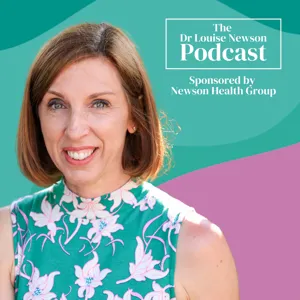
Dr Walter Rocca is a neurologist from the Mayo Clinic in Minnesota, USA, where he studies common neurological diseases as well as the aging processes between men and women. He has a particular focus on estrogen and the effects of menopause on health risks.
In this episode, Dr Rocca explains how sex hormones have a much greater role in many of the body’s functions than simply regulating the menstrual cycle and reproduction. He explains why it’s so important to treat women with hormone replacement after bilateral oophorectomy with or without hysterectomy or early menopause, especially younger women.
Dr Rocca’s three take home messages:
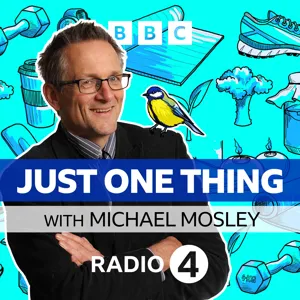
Turmeric is a close relative of ginger – it has a similar knobbly root-like stem. The golden-hued powder of turmeric adds colour and flavour to food, but it’s also been linked to some surprising health benefits. As well as helping with wound healing and skin conditions, it’s been linked to better brain health. Michael Mosley speaks to Dr. Benny Antony from the University of Tasmania in Australia who has found that turmeric extract was as effective as ibuprofen to reduce pain levels. Meanwhile, our volunteer Yu She cooks up a storm with chicken korma and turmeric pancakes.

Nuts are a rich source of fibre and polyphenols. They are also very high in fats and calories, but studies have shown that eating these bite-sized snacks won’t add to your waistline. These nutrient powerhouses could also help slow-down the ageing process. Research has found that walnut eaters live, on average, over a year longer than those who don’t. What’s more, adding nuts to your diet can help your brain! Michael Mosley is joined by Dr Sze-Yen Tan from Deakin University in Australia who reveals how eating nuts can benefit the brain, and why eating moderate amounts of nuts won’t add to your waistline. A recent study of his found that people who ate nuts performed better in cognitive tests and had improved short-term memory. Meanwhile, our volunteer Emma swaps out her usual snack for a handful of mixed nuts!

Finally! A whole episode of brain facts / brain myths. I am in my element
See omnystudio.com/listener for privacy information.

This episode is all about the different kinds of memory. Working memory, long term memory, how memories are formed, stored and retrieved. What false memories are and how they come about and how to improve your own memory consolidation and retrieval.
See omnystudio.com/listener for privacy information.
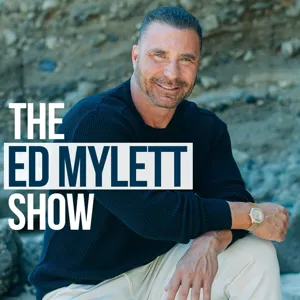

Our modern world is bound to the seven day week, but why is this the case? Is there anything in the cosmos or the inner workings of the human body that dictate this arrangement? In this episode of Stuff to Blow Your Mind, Robert and Joe explore the history and invention of the seven day week. (originally published 03/03/2022)
See omnystudio.com/listener for privacy information.

The Times Briefing for the Morning of Tuesday 31st January
For more on these stories throughout the day tune into Times Radio - on DAB, online, through your smart speaker or on the Times Radio app
Hosted on Acast. See acast.com/privacy for more information.



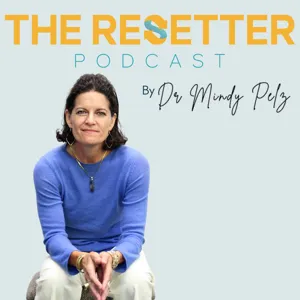
For full show notes, resources mentioned, and transcripts, go to: www.drmindypelz.com/ep144/.
To enroll in Dr. Mindy's Fasting membership, go to: resetacademy.drmindypelz.com.
This episode covers the indicators and consequences of insulin resistance. Thomas DeLauer discusses the best ways to combat insulin resistance through lifestyle changes.
Thomas DeLauer is an expert in diet, nutrition, and mindset. He is motivated by a guiding ethos of integrated optimization: if you perform better, so does the world. Thomas reaches more than 15 million viewers monthly (on average) through his Youtube channel, where he translates experience and learning from his own health transformation into actionable steps for his dedicated community of 2.9 million subscribers. The strength of Thomas’ platform is communication, distilling complex subject matter -- i.e. the biochemistry of the ketogenic diet, fasting, metabolic health, and more -- into digestible insights for the viewer.
Thomas has built a name for himself by helping busy people across the world find time to make small, easy changes to not only become healthier, but to become top performers in life, whether career, fitness, family, or hobbies. He has built upon his experience as a young, successful athlete and later, successful businessman that had found himself tipping the scales at close to 300lb. It was through his 100lb weight loss transformation that he was able to tap into how he could truly help others. These experiences allowed him to develop the belief that we all possess the ability to tap into the best versions of ourselves by optimizing our understanding and application of fitness, nutrition, and mindset. He is supported by a remarkable research team that backs his platform with science and evidence to validate the work, and his expertise is shared in fitness and lifestyle publications worldwide.
As a father and husband (2 young children), Thomas’ motivation lies in helping people become better not just for themselves but for their families. Utilizing lifestyles such as intermittent fasting, paleo, and even periods of keto, he inspires and optimizes those that are eager to become better versions of themselves.
Please see our medical disclaimer.

Rick Strassman is a Clinical Associate Professor of Psychiatry at the University of New Mexico School of Medicine. He is the author of numerous scientific papers and books, among them "DMT: The Spirit Molecule." His most recent, "The Psychedelic Handbook: A Practical Guide to Psilocybin, LSD, Ketamine, MDMA, and Ayahuasca," is available now.


View the Show Notes Page for This Episode
Become a Member to Receive Exclusive Content
Sign Up to Receive Peter’s Weekly Newsletter
Mike Gershon is a Professor of Pathology and Cell Biology at Columbia University and has been at the forefront of studying neural control of the gut for the past 60 years. In this episode, Mike gives a tour de force on the pathways of gut-brain communication but first sets the stage with an overview of gastrointestinal tract development and anatomy. He then explains how the gut communicates with the brain and vice versa, from early observations in physiology and anatomy up to our present understanding of what makes the GI tract so unique and complex relative to other organs. He talks about how the gut responds to meals of different food qualities and how that affects satiety signaling to the brain. Additionally, he explains how antidepressants and other drugs impact digestion through effects on serotonin signaling, and he discusses the effects of antibiotics, and what’s really going on with “leaky gut.” Finally, Mike offers his thoughts on the utility—or lack thereof—of gut microbiome diagnostic tests, and wraps up the discussion by considering how diet, probiotics, and prebiotics impact the microbiome and GI tract.
We discuss:
Connect With Peter on Twitter, Instagram, Facebook and YouTube
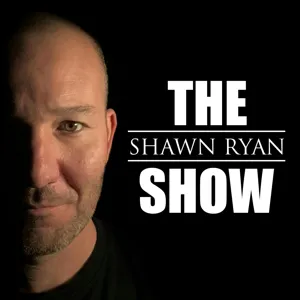
Stay up to date
For any inquiries, please email us at hello@podcastworld.io